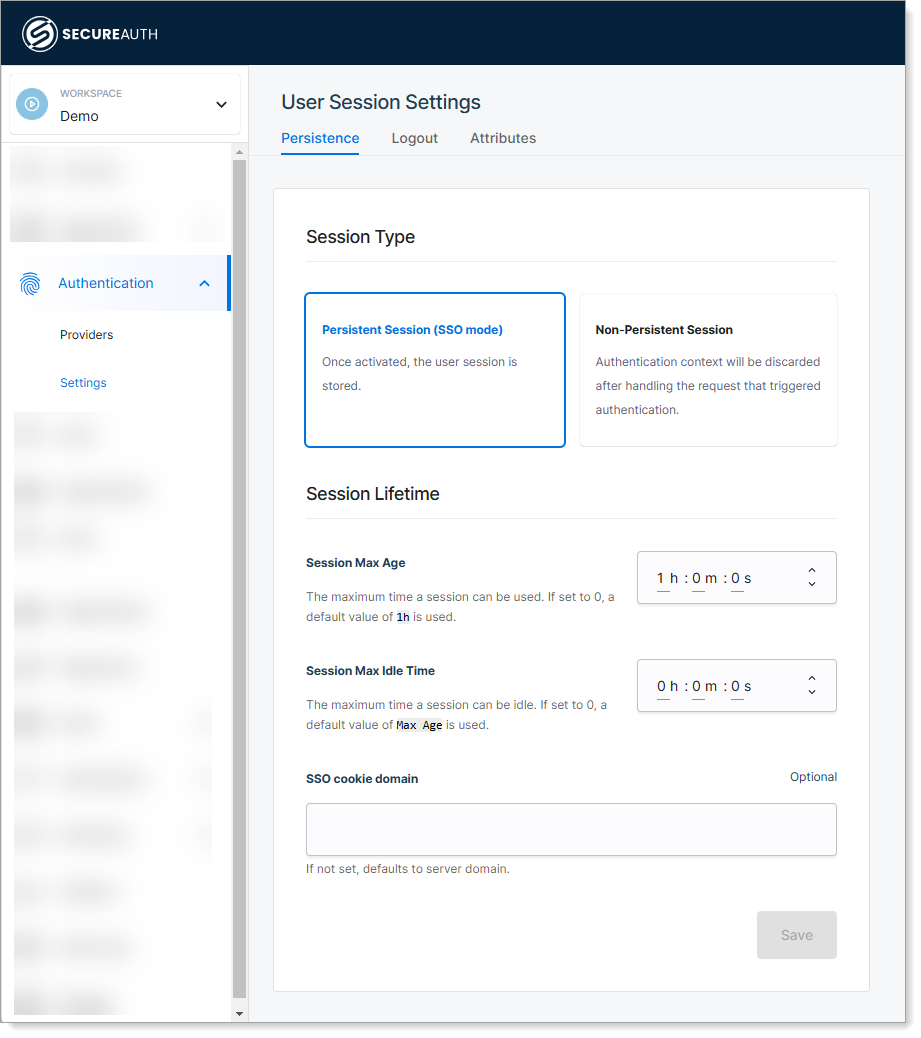Enabling Single Sign-On (SSO)
Enable Single Sign-On to allow users to authenticate just once and use the resulting session as a proof of authentication to all applications connected to the workspace.
Enable SSO
In the target workspace, from the left sidebar, go to Authentication > Settings > Persistence.
Select the Persistent Session (SSO mode) option.

In the Session Lifetime section, use the following settings to manage session behavior:
Setting
Description
Session Max Age
Set the time after which a user's session expires, requiring reauthentication.
Session Max Idle Time
Dfine the time after which an inactive session expires, requiring reauthentication.
SSO cookie domain
Define the domain for the SSO cookie of logged-in users. If empty, it adopts the authorization server's domain. When set, this domain is also allowed for logout redirects.
Allowed Logout Redirect Domains
List domains where applications can redirect users after logout. These domains are valid only if the
redirect_toparameter is included in a request to the/authorizeendpoint.Post-Logout Redirect URL
Set a default URL to redirect users after logout if the application request doesn’t include a
redirect_toparameter.
Result: After logging into an application through SecureAuth, users can access all workspace applications without reauthenticating, as long as the session remains valid.